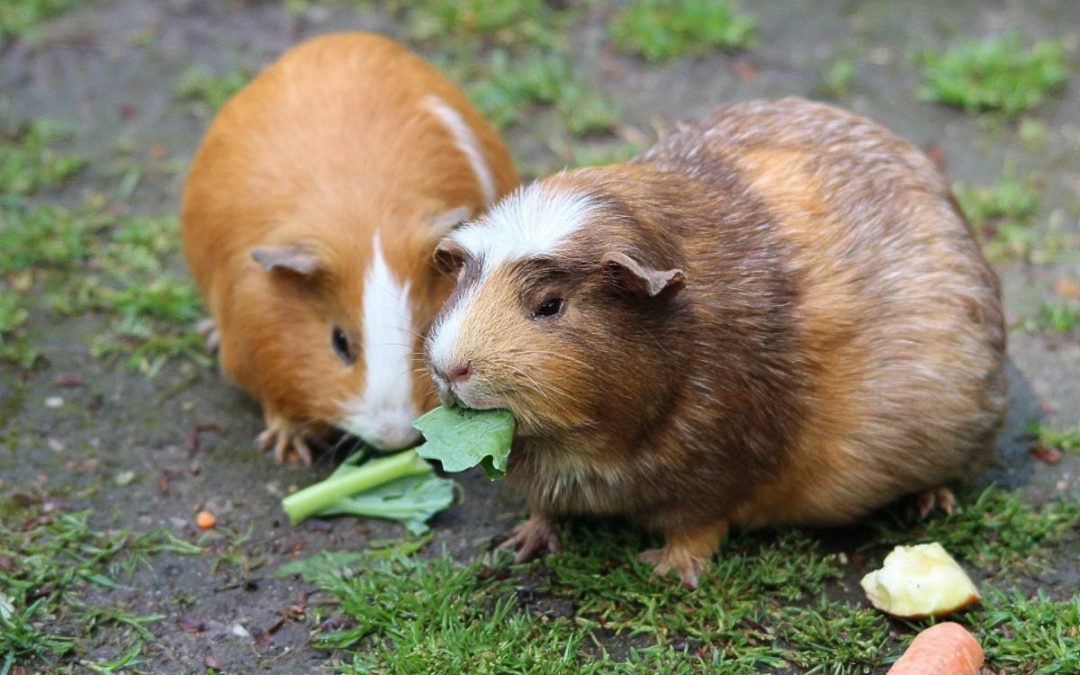One of my favorite things about guinea pigs are all the cute little noises to show their affection. In addition to squeals, chirps and purrs, guinea pigs are also known to jump straight up and down in the air when they are happy, commonly referred to as “popcorning.” These adorable little pocket-sized pets can be hard to resist.
Unless you’ve already had the experience in owning one, there are many things to consider before adopting one into your pet family. Don’t let the term “pocket pet” fool you into thinking these furry little pigs are low maintenance pets. Once you do some research, they could be the perfect addition to your family, but first there are a few things they want you to know.
We need a large cage and plenty of space for exercise
Many people are surprised to know that a single guinea pig requires a cage size of 7 ½ square feet, and two guinea pigs require a cage size of 10 ½ square feet. They need a safe place that allows them to run, jump, explore, and potentially hide from environmental stressors. Also, be sure to keep their home away from drafty windows. It is recommended to keep their environment around 70 °F.
We like soft clean bedding
Aspen, pine, recycled paper, or fleece bedding over absorbent material work well. Never use cedar bedding as it is toxic for your guinea pig. It is also important to have a solid bottom in their cage to help in avoiding potential leg injuries.
Their cage will need cleaned on a weekly basis. Bedding should be changed out monthly, and food and water containers will need to be cleaned every day.
We love being pampered
One thing you may be surprised to learn is that guinea pigs need some grooming as well. Short haired breeds need brushed once a week, and long haired breeds need brushed every day. Their little nails need trimmed every 4 to 6 weeks.
Guinea pigs also need daily interaction! It is vital to provide a safe place to give them time out of their cage every day to stretch those little legs and explore their environment. This is an important time commitment to keep in mind before adopting a guinea pig.
Eating is our favorite
Guinea pigs LOVE fresh hay! They should have unlimited access to a variety of quality grass hays. They typically eat piles of hay twice the size of their body every day.
These little love bugs cannot make their own supply of vitamin C, so it must be supplied for them. To ensure your guinea pig is getting the essential vitamins and minerals not found in hay, provide a daily high fiber fortified diet with stabilized vitamin C.
Fresh kale, romaine, red leaf lettuce, shredded carrots, and/or zucchini can be added every few days. A fruity snack like papaya, banana, or mango can be added once a week. Always be sure to remove any food that isn’t eaten!
We are social butterflies
Not only do they love their time bonding with their family, they also love having a companion. Are you willing to adopt two guinea pigs? This is something to consider, as guinea pigs do best with the companionship of another pig.
Sometimes we don’t feel good, and may require a trip to the veterinarian
Keep an eye on your guinea pig and be sure to visit your veterinarian if you notice any of the following behavior or health issues.
- Abnormal eating or drinking
- Loose, soft, or lack of stool
- Blood in the urine
- Sneezing or trouble breathing
- Hunching in corner or lack of activity (lethargy)
- Overgrown front teeth
- Observed difficulty with chewing
- Bald patches in the fur
- Sores on the feet
Guinea pigs can be a wonderful addition to any animal loving family that is willing to put in the time and effort to care for them. If you are considering adding one or possibly two to your pet family, it is important to do your research and be prepared. We’ve compiled more information that you can find here.
Are you an experienced guinea pig owner with tips or stories to share? We’d love to hear from you!


Recent Blog Comments